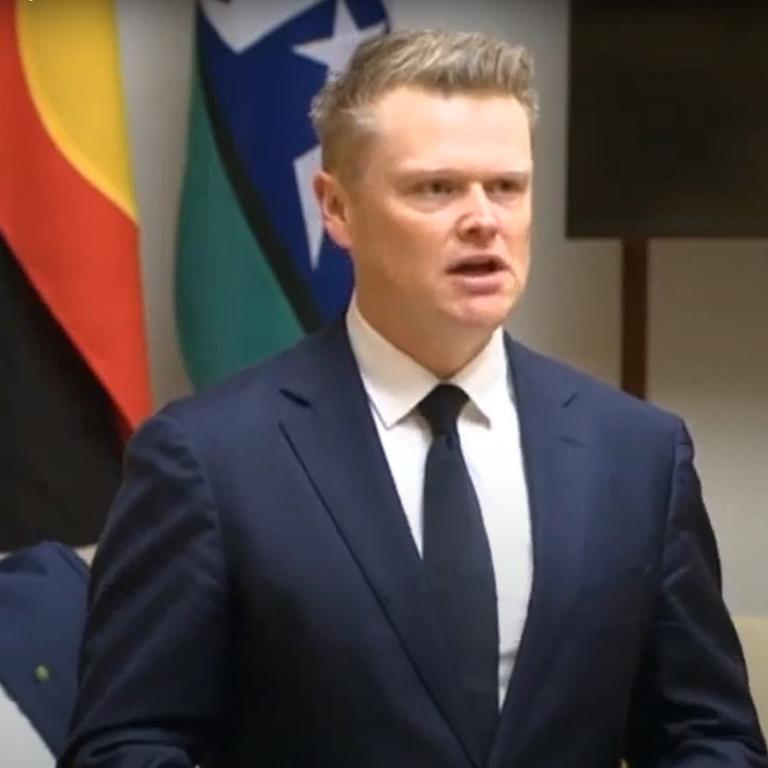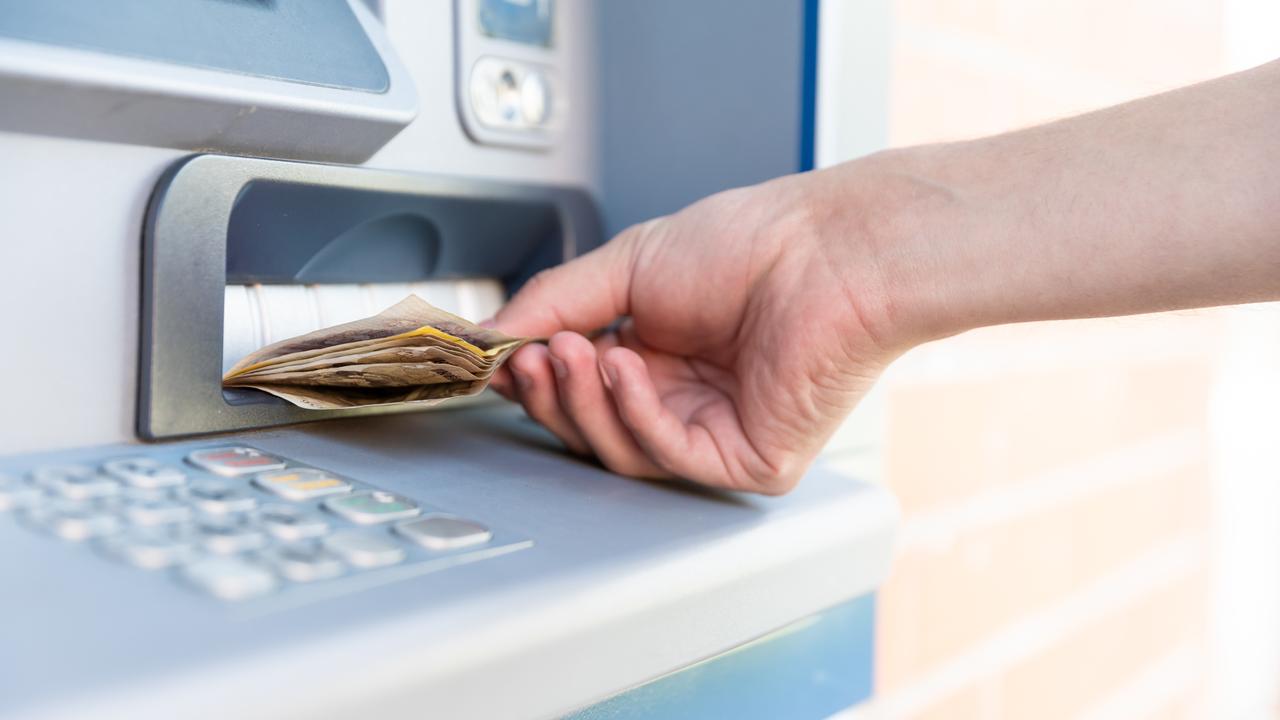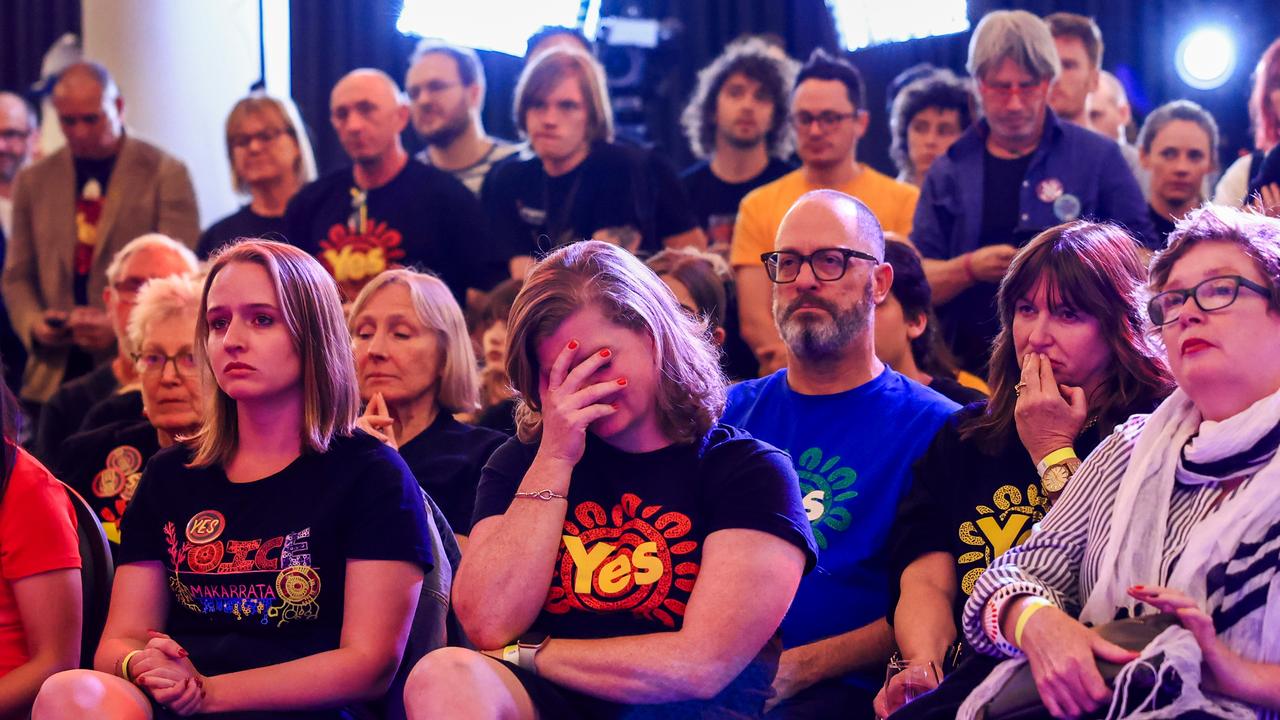‘Not a conspiracy’: Federal MP shares personal bank nightmare as he warns of a digital identity transition
A federal MP has delivered a firey speech, warning that a personal bank struggle proves the dangers of digital identity changes headed for Australians.
A federal Liberal MP has put the Australian banking sector on blast in parliament after he and many of his constituents were locked out of their online accounts.
As the banking sector faces criticism over the mass closure of banks and ATMs, member for Menzies Keith Wolahan this week told fellow parliamentarians of the moment he was among many left stranded with no access to his own money due to digital identity issues.
Mr Wolahan said he and his children were having a quick breakfast out between early morning running club and school when his cards declined, leaving him unable to settle the bill.
“I had to get my brother to quickly come and get my kids to school,” he explained.
“When I eventually got through to the bank, they wanted to talk to me about verifying my driver’s license and to get my attention; they shut down all my banking.”
Fellow members on the floor could be heard agreeing.

He said that while his situation was a minor inconvenience, he later found numerous constituents were caught out in much dire situations.
“They did that at a time when many people were exiting car parks, they couldn’t pay for them, and there was a huge queue behind them … people were embarrassed in front of their friends and family at restaurants … many people had things to do,” he said.
“For the convenience of the bank wanting to know what your ID was, even if you had been banking with them for decades, they could switch off your banking like that.
“Disconnect you from your ability to be a part of your economy.”
News.com.au understands the cut-offs occurred as Australian banks reconfirmed customers’ identities amid an anti-money laundering crackdown.
He argued it warranted suspicion into how digital identification is used in the banking sector and customers’ vulnerability in the digital economy.
“At the heart of this is trust,” he said.
Mr Wolahan added that Australian banks showed they were “out of whack” with their customers by donating heavily to the Yes campaign.
“Those same banks donated millions of dollars to one side of a campaign that was out of whack with the same people who they were shutting off from being able to pay for things.”
He said the millions donated by the big banks would have been better served directly addressing indigenous disadvantage or ensuring their own services worked without cutting customers off from funds.

“There is a disconnect between the priorities of some of corporate Australia and the realities of what Australians are facing,” he lamented.
In early October, parliament heard Westpac contributed $1.75m, National Australia Bank donated $1.5m, and Commonwealth Bank provided $2m to the Yes campaign.
The fiery speech was delivered as a warning shot to the Digital Identity Bill.
If passed, the bill will establish a nationally regulated system for Digital ID that will be accessible across both public and private sectors.
The new system pledges to include strong privacy provisions and the ACCC will be the initial regulator.
Mr Wolahan told news.com.au that the anecdote shows a need for Australia to approach a broad digital transition with caution.
He said it proved that the institutional capacity to affect the public is accurate.
“It’s not a conspiracy theory,” he said.
“There are people who may write this off as people who are engaging in conspiracies or fantasies, but they’re not.”
“They may be people who have had an experience like mine or heard of one that has given them cause for concern.
“We’re vulnerable to cyber attacks and other system shutdowns.

“We should have sensible risk management in one of the most important roles our economy has, which is how we actually exchange money between each other.”
Weighing into recent coverage regarding a supposed move away from cash, Mr Wolahan, whose suburban electorate has seen banks and ATMs vanish, hoped physical currency would remain as “fire insurance”.
“We should think very carefully about removing it,” he said.
“People are asking the question, “Where and how do I get cash?”
He said elderly and migrant community members struggle the most to adapt to the digital economy, which is becoming increasingly ingrained.
“They understand the freedom that comes with being able to pay for things with cash,” Mr Wolahan said.
Earlier today, news.com.au reported APRA’s latest findings, covering the 12 months leading up to June 2023, show 424 bank branches or 11 per cent of Australia’s overall branches, have disappeared.
The data collected by APRA also highlights a rapidly declining trend in the number of ATMs available to the public.
The past year witnessed an 11 per cent reduction in ATMs, with more than 700 cash machines removed.
Since 2017, Australia has seen a staggering 60 per cent decrease in operational ATMs, leaving fewer than 6000 cash machines across the country.
Jason Bryce from Cash Welcome Campaign, who led a 130,000-strong petition lobbying to maintain access to cash, said the nation is being “herded” into digital banking.
“(They don’t have) a right to herd us into a private system and charge us fees,” he said.






